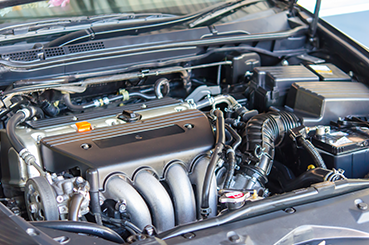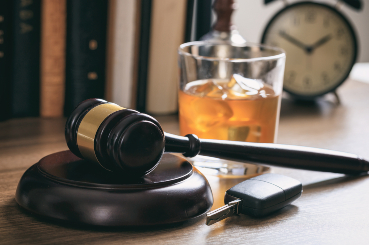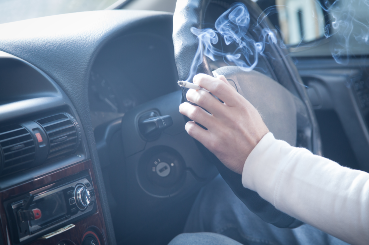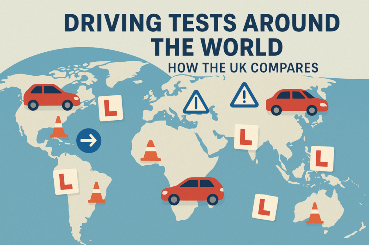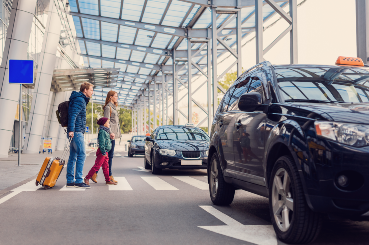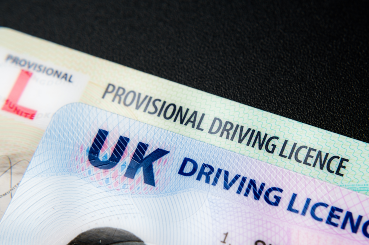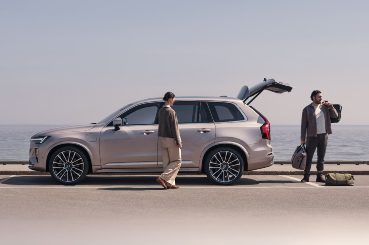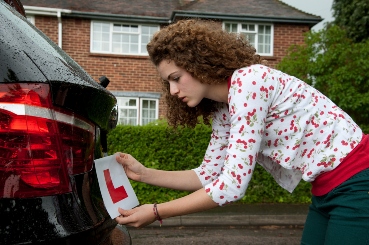
While most of us wouldn’t dream of breaking the law, driving offences are quite commonplace and many of us will have broken at least one UK driving law through our driving lifetime.
Driving offences can vary from relatively minor misdemeanours to more serious offences. To help you understand what laws you may have committed, we’ve compiled a complete guide to various driving offences and the subsequent punishments.
The Difference between Minor and Major Offences
Different driving offences usually fall into one of two categories; minor and major offences.
Minor Offences:
Minor offences include low-level misdemeanours, and the usual treatment is a fixed penalty notice (FPN). An FPN is an administrative alternative to prosecution in a Magistrates Court and usually involves the issue of a fine and penalty points on your driving licence. If you accept guilt, pay the fine or collect the points, you avoid a summons. However, if you challenge the FPN, you will have to appear in court.
Common minor offences include low-level speeding, driving without an MOT and using a handheld mobile phone behind the wheel.
Minor offences must be declared to your insurance company and may result in higher premiums.
Major Offences:
Major offences are serious misdemeanours dealt with at a Magistrates Court. They include offences such as driving under the influence of alcohol and dangerous driving.
Usually, the circumstances around the offence are taken into consideration, along with your driving record and any mitigating circumstances.
The punishment for major offences includes a driving ban and/or prison sentence depending on the severity of the offence.
For some major driving offences (ones unlikely to result in a driving ban) you can make a plea by letter.
Different Driving Offences
Speeding Offences
‘It is an offence under the Road Traffic Regulation Act 1984 to exceed the speed limit for a vehicle of the class that is being driven.’
Speeding is the most common driving offence in the UK and the offence the majority of us are likely to commit.
It is a common myth that you can travel 10% plus 2mph above a given speed limit. However, this is just a guideline for police to work with, and it is down to their discretion. They can still prosecute you if you are travelling 1mph over the speed limit. For your own and other road users’ safety, you should always stick within the given speed limit.
What will happen?
If you are caught by a speed camera, you will usually be sent a Section 172 Notice and a Notice of Intended Prosecution. It is then required to be sent back within 28 days, so you can explain who was driving the car at the time of conviction. If you don’t do anything about the letter within 28 days, you may have to go to court – however, if you do return the first letter, you will be contacted about your next steps (either court or a Fixed Penalty Notice).
For minor speeding offences, the usual Fixed Penalty Notice is £100 fine and three penalties. Furthermore, if you acquire up to 12 or more penalty points on your licence, this could lead to being disqualified. However, some people may be offered a speed awareness course instead.
SOMETHING TO REMEMBER: If you’re a new driver within 2 years of passing your test and have 6 or more penalty points, you will have your licence withdrawn from you.
If you are caught travelling more than 45% over the speed limit, the offence will usually be passed to the Magistrates Court for prosecution and could result in a hefty fine and a driving ban.

Mobile Phone Use
‘Using a mobile phone, sat nav, tablet or any device that can send or receive data is an illegal offence but also can be considered as dangerous or careless driving.’
Mobile phone use is an area that police are trying to crack down on. Since March 2017, the penalty for using mobile phone while driving is a £200 roadside fine and six penalty points. If you’ve only passed your test within 2-years of this offence, you’ll instantly lose your licence, too. However, if the offence is considered to be more serious, it can go to court, which can lead to a driving ban or a fine of up to £1,000.
You should remember that you can be fined for using a mobile phone when the engine is running. You should never be tempted to take a sneaky peek at your phone at traffic lights. If pulling over to answer a call or check your phone, you should do so only where it is safe to do so, and you should switch your engine off.
It is legal to use a device if using an approved ‘hands-free’ device, but you should always bear in mind that doing this may reduce your concentration.

Careless Driving (or driving without due care and attention)
‘Under section 3 of the Road Traffic Act 1988 is committed when the defendant’s driving falls below the standard expected of a competent and careful driver.’
Careless driving covers a multitude of driving misdemeanours, meaning it is quite easy to end up committing an offence without realising it.
Some examples of careless or inconsiderate driving are:
- overtaking on the inside
- driving too close to another vehicle
- driving through a red light by mistake
- turning into the path of another vehicle
- the driver being avoidably distracted by tuning the radio, lighting a cigarette etc
- flashing lights to force other drivers to give way
- misusing lanes to gain advantage over other drivers
- unnecessarily staying in an overtaking lane
- unnecessarily slow driving or braking
- dazzling other drivers with un-dipped headlights
If you are deemed to be driving carelessly, police can hand out on-the-spot fines of up to £100 and three penalty points. More serious offences will be referred to court and could result in a £2,500 fine and a driving ban.
In really serious cases of careless driving like a crash that causes a fatality, you could be prosecuted for causing death by careless driving. This can lead to a driving ban, an unlimited fine and a prison sentence of up to five years.
Dangerous Driving
‘Under section 2 of the Road Traffic Act 1988 is committed when the defendant’s driving falls far below the standard expected of a competent and careful driver and it would be obvious that driving in that way would be dangerous.’
Dangerous driving is a more serious offence than careless driving and as such leads to harsher punishments. Depending on the seriousness of the offence, it can result in an unlimited fine, a driving ban and up to 14 years in prison.
Examples of dangerous driving are:
- speeding, racing, or driving aggressively
- ignoring traffic lights, road signs or warnings from passengers
- overtaking dangerously
- driving under the influence of drink or drugs, including prescription drugs
- driving when unfit, including having an injury, being unable to see clearly, not taking prescribed drugs, or being sleepy
- knowing the vehicle has a dangerous fault or an unsafe load
Distractions are also causes of dangerous driving, for example:
- using a hand-held phone or other equipment
- reading, or looking at a map
- talking to and looking at a passenger
- lighting a cigarette, selecting music, tuning the radio

Drink Driving Penalties
‘It is illegal to drive if the amount of alcohol in your breath, blood or urine is over the prescribed alcohol limit and you are unfit to do so through alcohol or drugs (legal or illegal) in your system.’
In England, Wales and Northern Ireland, the legal alcohol limit for driving is shown below. Scotland, meanwhile, has a lower limit than the rest of the UK.
| Level of alcohol | England, Wales and Northern Ireland | Scotland |
| Micrograms per 100 millilitres of breath | 35 | 22 |
| Milligrammes per 100 millilitres of blood | 80 | 50 |
| Milligrammes per 100 millilitres of urine | 107 | 67 |
It is hard to quantify what this blood level equates to in a given drink. That’s because the actual amount of alcohol you can drink while remaining under the limit varies depending on various factors, including your body size and how much you’ve had to eat. The best advice is not to drink at all if you are driving. Plus, if you have been drinking heavily the night before, you should avoid driving the next morning as you may still be over the limit.
What will happen?
Police can stop you at any time to breathalyser you and test the amount of alcohol in your breath. If you’re found to be in charge of a vehicle whilst over the legal limit/unfit through drink, you could find yourself with a 3-month imprisonment, up to a £2500 fine and a possible driving ban.
If you fail to comply with the police, you will be arrested and taken to a police station to provide a more accurate sample. Should this indicate you are over the limit, you face a driving ban, an unlimited fine and up to six months in prison. This is the same if you still refuse to prove a specimen of breath, blood or urine for analysis.
If you are involved in a crash while over the alcohol limit and are found to be responsible for another person’s death, you could be hit with life imprisonment, an unlimited fine and a driving ban of at least five years. You may also be required to take an extended driving test to get your licence back.

Drug Driving
When it comes to drugs, there is no ‘legal limit’. Police can carry out roadside tests if they suspect you are unfit to drive due to legal or illegal drugs.
SOMETHING TO REMEMBER: Legal drugs are over-the-counter/prescription medications. If you are not sure if you should be driving whilst taking them, please speak to your doctor/pharmacist or healthcare professional.
It is important to note that both illegal and legal drugs can result in you being pulled over. While many of us would never take illegal substances, we may inadvertently take legal drugs which affect our driving performance. Amphetamines, morphine and some anti-histamines are some of the commonly prescribed drugs which can affect your ability to drive.
The potential penalty for drug driving is a minimum of a 1-year driving ban, an unlimited fine and six months in prison. Plus, your driving licence will hold your drug conviction for 11 years. However, as with all driving offences; the worse the offence, the worse the punishment.
Driving Documentation Offences
‘It is also an offence to fail to produce a driving licence – section 164 (1) Road Traffic Act 1988, an MOT certificate or insurance certificate – section 165 Road Traffic Act 1988.’
Thanks to advances in technology, police are now able to more easily track driving documentation offences. Using automatic number plate recognition (ANPR) cameras, police can identify cars being illegally driven without insurance or a valid MOT.

Driving Without Insurance
Can lead to a roadside penalty of up to £300 and six penalty points on your licence. However, if it ends up going to court, you could find yourself in a situation where you have an unlimited fine and are disqualified from driving. Police also have the power to seize uninsured vehicles and destroy the car if it’s driven without insurance.
SOMETHING TO REMEMBER: If your car is not in use and kept on private land – you can declare it off the road with a SORN (Statutory Off Road Notice) to the DVLA.
Driving Without Tax
It is a very serious criminal offence if you drive without car tax. If you are caught by the police, you could find yourself hit with a fine of up to £1000.
The DVLA keep an eye on all of the cars registered in the UK since the tax disc ended in 2014 – meaning if your car is not declared as SORN, you will automatically be sent a £80 fine in the post.
Driving Without an MOT
An MOT is a car’s annual test of roadworthiness. It is designed to help keep you and other motorists safer on the road. Being caught without a valid MOT can result in a £100-on-the-spot fine but no penalty points.
If the car is not deemed to be road-worthy, you can face a more serious penalty for driving without mot and the case may go to the Magistrates court. You can be hit a fine and points on your licence for each fault discovered. For example, if all your tyres are below the legal 1.6mm legal tread depth, you can face a £400 fine and 12 penalty points (which could then lead to a driving ban).

Other Common Offences
There are many other common driving offences including:
Driving in a Bus Lane
Bus Lane Enforcement is incorporated into public transport systems to make roads safer. This is enforced by cameras and signage that informs motorists about bus lanes that are in motion.
If you are caught driving in a bus lane, you may receive a fine for driving in the bus lane (Penalty Charge Notice) and expected to pay the fine within 28 days of the notice.
Driving Without a Licence
This offence covers a myriad of offences from driving underage, driving on a provisional licence without appropriate supervision and driving without a licence at all. The punishment can be a fine of up to £1,000, six points on your licence and a possible disqualification from driving.
Driving When Disqualified
Driving when disqualified is considered a serious offence, and if you’re caught driving during a ban, police will arrest you on the spot. A court will then decide your fate, which could mean a custodial sentence.
Parking Offences
There are certain places on roads which can lead to a Penalty Charge Notice or a Fixed Penalty Notice (these are usually issued by the police and health through the criminal justice system).
You can stop on double yellow lines, however, you cannot linger around waiting for someone.
Additionally, you cannot wait or stop at a bus stop to drop anyone off or “just because”. The only exception is if you are in a flow of traffic.
Other Minor Offences
Other minor offences include not wearing a seatbelt and using an unsuitable or incorrectly fitted car seat.
Sources: Information regarding specific laws taken from https://www.gov.uk/browse/driving/penalty-points-fines-bans
